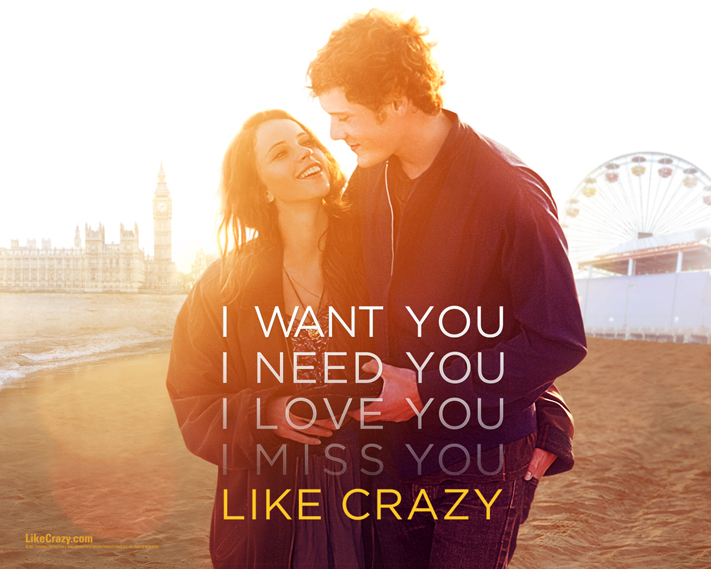In Like Crazy, a 2011 film directed by Drake Doremus, two lovers are torn apart by mere distance. Anna, a writer, is a British exchange student, who falls in love with Jacob, a furniture designer and an American boy. She leaves her number and a hand-written confession in his windshield, to which he promptly responds with a phone call for coffee. Their first date is full of pauses and embarrassing interruptions during conversation. This isn’t something out of fairy tales. It’s awkward and genuine, and we want nothing more than for things to work out between them—so when Anna violates her student visa to spend her summer with Jacob, our hearts are already breaking at the thought of the inevitable consequences. Anna eventually returns to London, but when she next flies out to L.A. she is detained at customs, where it is explained that her prior visa violation prevents her from being allowed back into the country. From here, we are taken on an emotional roller coaster as the two main characters struggle to cope with the difficulties of a relationship made more painful by the distance between them.
The story is a universal one, making it only natural to project some of ourselves onto the characters. Anton Yelchin and Felicity Jones co-star and deliver truly compelling performances, Jones especially. I find myself sympathetic for Anna at every turn; her motivations are pure, simple and easy to understand. Jacob, on the other hand, is quiet, but sincere. During hiatus, the two have separate affairs—Jacob with his co-worker Sam and Anna with her neighbor Simon. These relationships provide a unique insight to each of our main characters and how their personalities play out with different people, with Sam emphasizing Jacob’s reserved nature and Simon emphasizing Anna’s emotional dependence. Ultimately, they both serve as painful reminders of who Anna and Jacob wish they were actually with.
The film’s tone falls somewhere between 500 Days of Summer and Blue Valentine, but still retains its own identity. Some might complain about the number of montages, but I found them to be subtle reminders of relativity: how months can fly by in moments, while high-strung tension seemed to stretch moments indefinitely. Scenes were improvised from an outline written by Doremus, resulting in the raw and genuine moments between characters. While I find that this betters the movie overall, it leads to problems in the plot’s bigger picture. While Anna is unable to return to the U.S., Jacob visits Anna several times in the United Kingdom. This, of course, presents the question: why not move there permanently? Since this issue is never addressed, I can only assume that Anna wanted to move to the U.S. in the first place for the sake of the plot’s credibility.
Still, Like Crazy is an exceptional film that I strongly recommend seeing. It has its share of shortcomings and clichés, but the former is overshadowed by the movie’s strengths, and the latter is used in good taste. It’s a fresh take on modern romance and one we can easily relate to.
